Recently I returned from nearly three weeks of travel in southeast Asia, visiting a range of animal-related projects in Indonesia and then attending the 2015 Asia for Animals conference in Kuching, Malaysia. I have been recording my experiences for the Animal People Forum in the article series “Archipelago Animal Adventures,” still under construction. Click to read parts one, two, and three if you so wish.
Originally, the material in this article, covering my visits to wildlife markets in Jakarta and Yogyakarta, would have been part of two separate entries in that series, covering chronologically everything I saw during my travels.
However, of all the animals I encountered in Indonesia and Malaysia, and all the ways in which they suffered by human hands, it was those for sale in the markets that have most stayed with me. Their terrified eyes haunt my memory, and the brutal injustice of their suffering weighs heavily on my heart. In addition, the larger issue they represent – the capture and sale of wild animals through Indonesia’s illegal, yet thriving wildlife trade – is perhaps Indonesia’s greatest animal-related crisis, threatening not only animals’ well-being, but the survival of the region’s entire ecosystem.
As such, I’ve decided that rather than relegating them to a sidenote in the story of my “archipelago adventures,” the animals I saw in the markets of Jatinegara and Pasty deserve recognition in a story all their own.
Unless otherwise marked, all photos are free to use for non-commercial purposes, as specified under CC BY-NC 4.0.
__
Monday, September 28th:
I first learned of the Jatinegara market while on the road from Cikananga, where I had visited Jakarta Animal Aid Network’s wildlife rescue center, back to the city of Jakarta. My driver, Mr. Dana, told me about a black market where I could see wild animals sold illegally, and offered to take me there. While initially surprised that such a place could be easily accessed, I accepted his offer, as I had so far seen numerous animals rescued from wildlife markets and expected I could learn a great deal from visiting one firsthand.
The Jatinegara market is located in the district of the same name within Jakarta. I was shocked at how visible it was, its entrance located on a major road with many animal sellers plainly visible to anyone driving by. In fact, police could be seen right across from the market, seemingly oblivious to its presence as they inspected cars for parking violations. Mr. Dana explained to me that even though the market is illegal, its operators have the local police in their pocket – typical of Indonesia’s famously corrupt bureaucracy.
Mr. Dana assured me I would be welcome to take pictures, but I was instinctively suspicious of this claim. Even if the local police weren’t going to do anything to close the market, that didn’t mean the traffickers wouldn’t see me as a threat should I attempt to provide evidence of their wrongdoing to higher levels of government or to foreign organizations. Accordingly, I chose not to start photographing what I saw right away, but to instead walk through the entire market once, then decide what to photograph and how on the way back. I ended up only using my smartphone camera, in hopes of appearing more like an ignorant tourist than a reporter with an agenda.
This is what I saw:
- Pigeons
- Pigeons
- Pigeon with strangely swollen (tumorous?) throat
- Oddly colored finches; artificially dyed?
- Haphazardly stacked cages of birds
- Little green bird
- Myna
- Myna
- Rainbow lorikeets
- Hanging cages of birds
- Stacks of cages
- Shoppers walking through Jatinegara
- Stacks of cages
- Lovebirds
- Bird in cage
- Finches
- Green bird
- Lovebirds, one obviously self-plucking feathers out of stress
- Lovebirds
- Lovebirds
- Yellow bird with blue head
- Birds in cages
- Birds, mostly pigeons, in cages
- Stacks of birds in cages
- Parrots in cages
- Parrot
- Lovebirds
- Lory
- Lory
- Pigeon, seemingly missing a foot
- One-footed pigeon
- Stacks of cages
- Iguana
- Lories
- Sugar gliders
- Baby macaque
- Frantically pacing civet
- Civet
- Civet
- Reptiles in cages
- Baby macaques in cage
- Hedgehog and other mammals
- Birds in cages and shopkeeper
- Owls and other wild animals
- Owls
- Owls
- Tree shrews
- Tree shrews
- Tree shrews
- Monkeys in cages, just before mob formed
In addition to animals captured from the wild, Jatinegara also featured a variety of domestically raised animals, including cats, rabbits, chickens, ducks, guinea fowl, and fish. I felt especially sorry for the cats and rabbits, many of whom were long-haired and clearly overheated, lying nearly motionless at the bottoms of their cages save for their rapid, desperate panting:
- Rabbits
- Ducks and ducklings
- Rabbits
- Fish
- Fish
- Cat
- Cats
- Chickens and keeper
- Chicks
- Chickens
- Rooster
- Ducks and chickens
- Ducks
- Guinea fowl
- Guinea fowl
Initially, no one minded my taking pictures. One man even posed with a python and invited me to take his photograph. As I moved my way up through the market, mostly photographing birds, many people gave me suspicious looks but did not otherwise object.
However, once I started photographing monkeys – all babies, one of whom greeted me by rapidly puckering his lips despite his obvious terror at his surroundings – the shopkeepers rapidly turned hostile. First one of them scowled at me and shouted, shooing me away with his hand. When I stopped to take one more photo – not of the monkeys this time, but a stack of reptiles in cages – he threw or knocked something over from inside the store.
At the next shop where I stopped to photograph monkeys, the shopkeeper started to beg me not to, “No no, please friend,” then moaned despairingly as I quickly retreated.
Finally, at the entrance of the market I pushed my luck a little too far. One photo drew the shopkeeper’s attention. The second summoned a small mob of at least five angry men. Purely by accident, in that second photo I captured perfectly the brewing hostility to my presence:
The shopkeeper and his friends began grabbing at my phone, and at the unused high-quality camera hanging around my neck. Fortunately I managed to hold on to both, but several times had to physically push the men away. They began to threaten me with their fists, and I decided that it was time to leave the market before provoking a violent brawl. As I walked away, they continued to push me and kick at the backs of my legs, at one point tripping me into a case of books outside a bookstore. This helped me to escape, as the booksellers became angry at the animal traffickers, though the man selling the monkeys I’d photographed got a few more kicks in before giving up.
I walked a few more blocks, until I was fully out of sight of the mob, then crossed to the other side of the road and returned to Mr. Dana’s car. He was surprised at the violent turn my visit to the market had taken, and suggested I would have had better luck had I smiled and put on a friendly tourist act. He was probably correct, but alas, I would not make for a good undercover investigator. Essential and admirable as such work is, I don’t have it in me to fake friendliness toward people who, for their heartless treatment of animals, I can only regard as my bitter enemies.
__
Wednesday, September 30th:
While driving me to the Jakarta airport, from where I would fly to Yogyakarta in central Java, Mr. Dana told me about two more wildlife markets I could see in that city: Ngassam and Pasty. After my harrowing near-escape from Jatinegara, I wasn’t sure visiting another market was such a wise idea. Yet as it happened, two days later I found myself right outside one of them purely by accident.
I had just returned from a day trip to the ancient temples of Borobudur and Prambanan, and was waiting for my host Ina of Animal Friends Jogja to pick me up, when I noticed a number of birds in cages in the marketplace behind me. I took a few photos, taking them for pet birds but not initially recognizing that they were for sale. Then I noticed the sign above the marketplace:
Pasty. One of the markets Mr. Dana had told me about. About that time Ina texted me and told me there was a wildlife market nearby I could inspect while waiting, but I had already connected the dots. I used my high-quality camera’s zoom to snap a few photos from outside the market. Then, cautious from my experience at Jatinegara, I hid it in my bag and began pretending to text on my phone, covertly taking photographs and recording video I could later extract screenshots from.
- Caged birds at entrance of market
- Caged birds
- Caged rabbits in the heat of the sun
- Caged rabbits
- Rabbits
- Rabbits
- Guinea pigs
- Rabbits
- Rabbits
- Guinea pig
- Rabbits
- Rabbits
- Severely overcrowded birds
- Birds in severely overcrowded cages
- Bird in cage
- Overcrowded bird cage
- Overcrowded bird cage
- Severely overcrowded birds
- Severely overcrowded birds
- Overcrowded bird cages
- Overcrowded cage of lovebirds
- Overcrowded lovebirds
- Mice (for pets, or to feed other animals?)
- Mice
- Cats
- Cats
- Cats
- Owls
- Owl in cage
- Birds in cages
- Chickens
- Parrots
- Rainbow lorikeet
- Lorikeet
- Lorikeet
- Parrot
- Parrot
- Parrot struggling against the limits of his chain
- Parrot
- Men carrying doves in a cage
- Cages and pet products for sale
- Cages of birds
- Chicks dyed in various colors, sold to children as living toys
- Dyed chicks
- Dyed chicks
- Dyed chicks
- Dyed chicks
- Dyed chicks
- Large aviary displaying doves and several reptiles
- Lizard in aviary
- Lizard in aviary
- Dove in aviary
- Large turtle in aviary
- Python in aviary
- Python in aviary
- Aviary interior
- Birds in cages (chickens or pheasants?)
- Birds in cages
- Green bird in cage
- Myna
- Myna
- Doves
- Owls and other birds
- Birds in cages
- Bird in cage
Of the many animals imprisoned at Pasty, the most heartbreaking for me were, as at Jatinegara, the cats and rabbits panting desperately against the heat; the red parrot struggling to climb, as he would naturally, against an extremely short chain; and the little multi-colored chicks, for whom the pointless idiocy of artificially dying them seemed to add insult to injury.
Fortunately for my safety and photo-taking ability, there was no confrontation this time, perhaps because none of the animals on display that day were clearly illegal to sell. I later learned from Ina, Femke, and several delegates at the AfA conference that endangered animals such as monkeys, lorises, and pangolins are in fact sold at Pasty, but generally only on weekends, or if specially requested to order.
Despite this, there would seem to be little hope of getting the Yogyakarta government to intervene. Not only are police bribed, as in Jatinegara, but the entire market turns out to have been government sanctioned, regarded as a source of pride for the city of Yogyakarta:
In English, the plaque translates to read:
“By the grace of God Almighty, we have opened the market of animals and plants in Yogyakarta, dated Thursday the 22nd of April 2010, by the Mayor of Yogyakarta H. Herry Zudianto”
My blood boiled as I read the plaque. I am certain that there can be no grace or God in damning innocent animals to such hellish captivity as I saw in Jatinegara and Pasty. I pray for their freedom and justice, and that these photographs and anecdotes might play some role, if only indirect, in helping activists in Indonesia and abroad to secure their liberty and destroy once and for all the hellish industry for which they are imprisoned and sold.
See also:
Winds of Change Along the Java Sea: Archipelago Animal Adventures, Days 1-2
Escape from Raptor Island: Archipelago Animal Adventures, Day 3
Night of the Fire Face: Archipelago Animal Adventures, Days 4-5

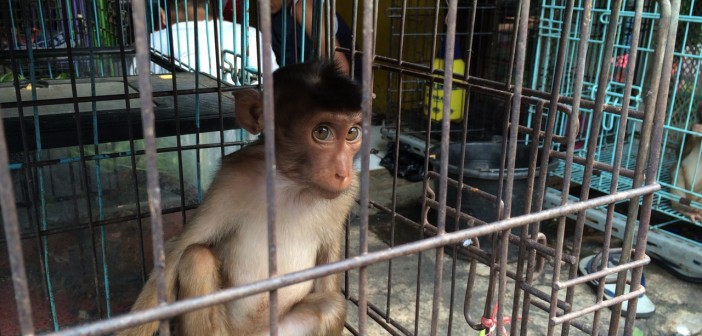
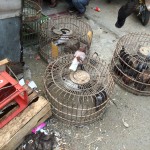
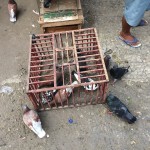
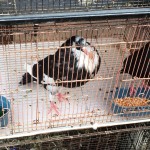
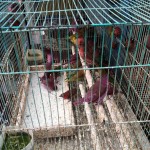
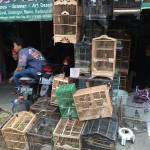
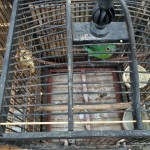
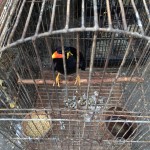
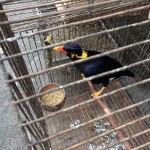
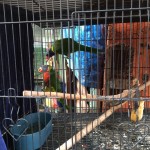
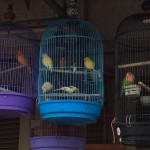
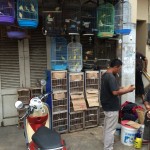
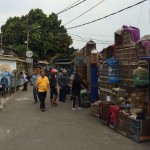
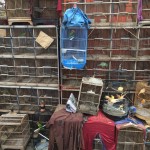
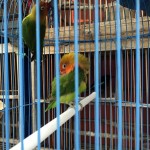
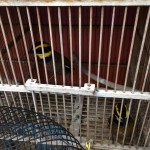
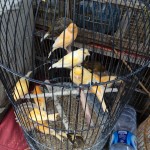

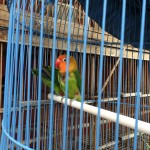
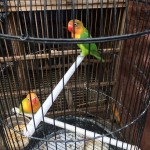
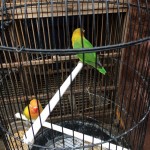
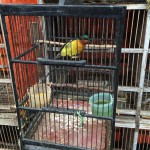
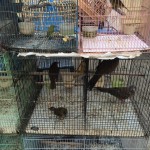
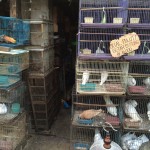
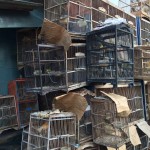
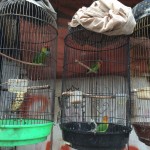
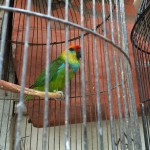
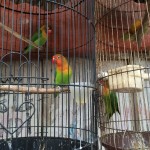
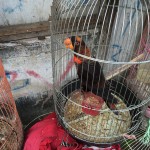
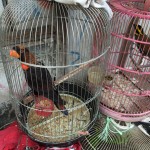
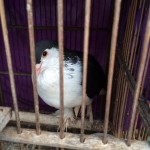
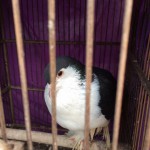
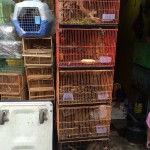
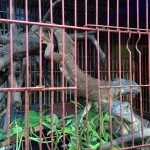
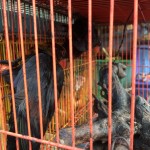
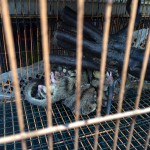
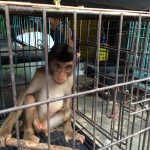
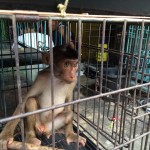
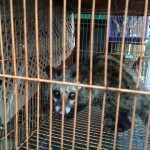
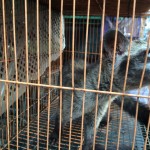
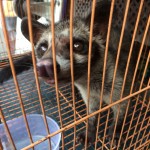
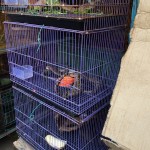
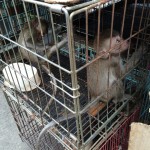
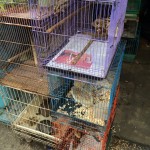
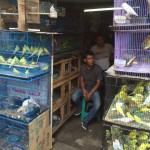
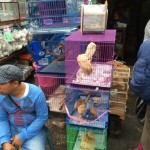
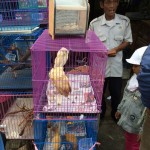
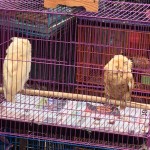
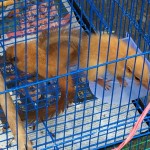
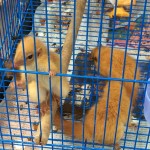
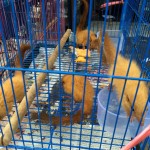
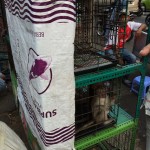
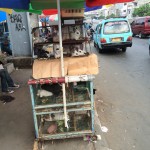
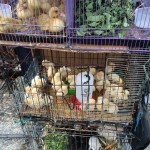

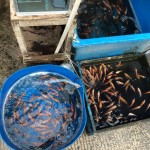
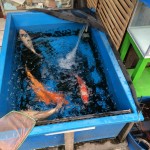
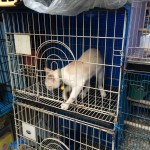
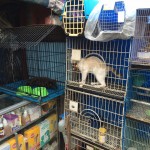
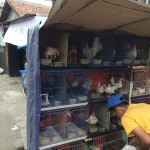
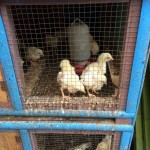
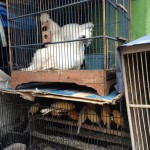
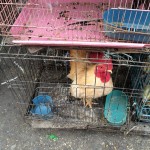
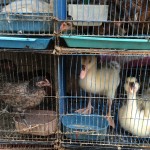
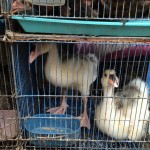
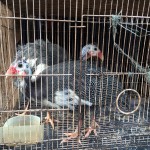
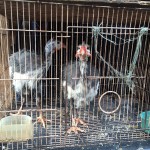
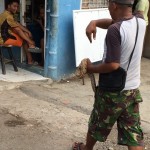
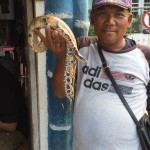
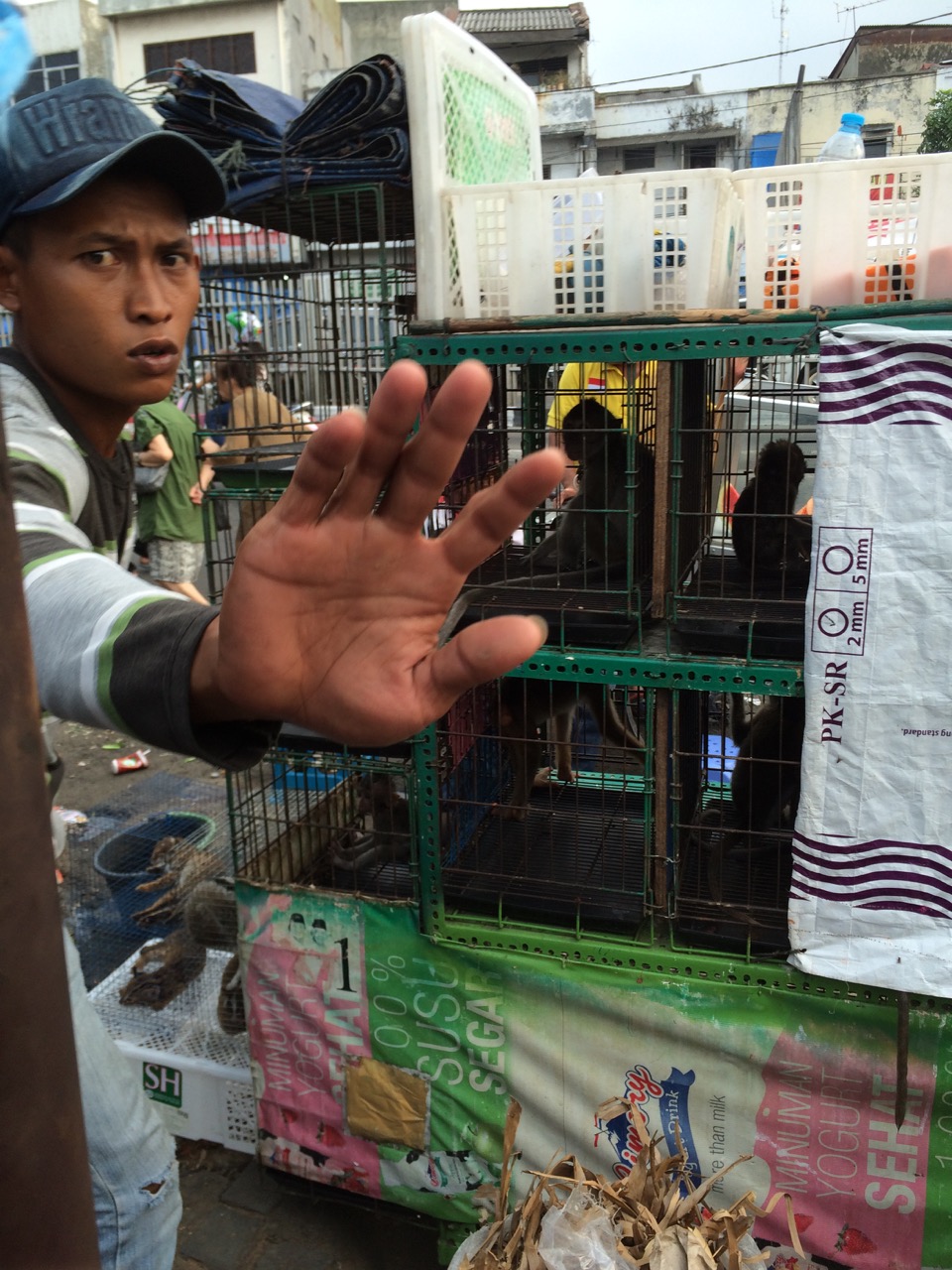
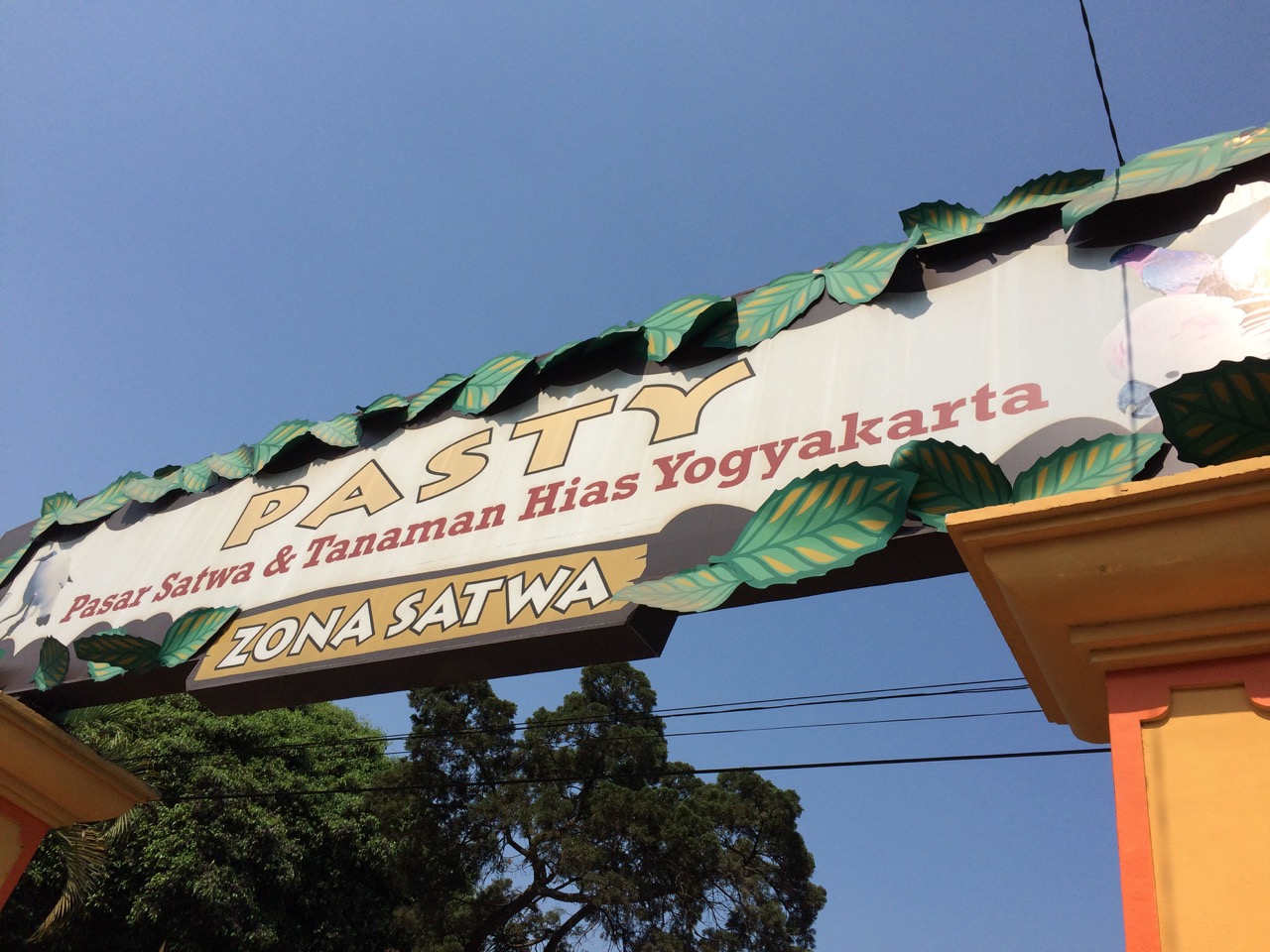
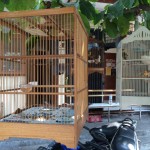
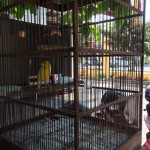
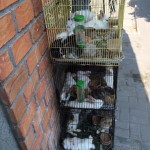
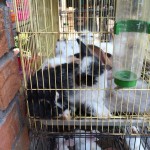

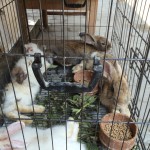
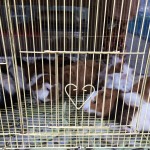
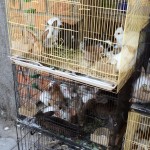

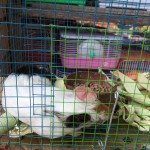
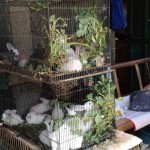
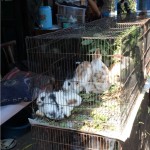
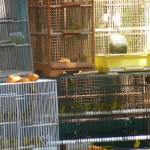
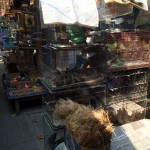
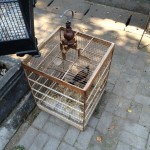
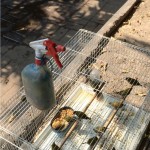
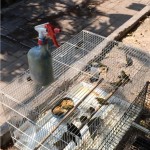
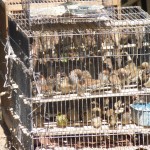
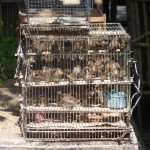
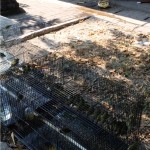
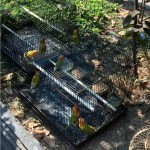
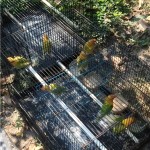
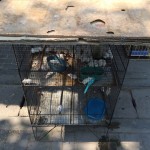
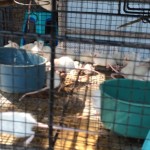
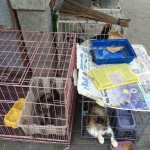
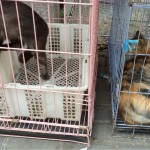
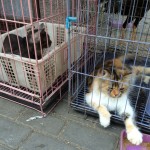
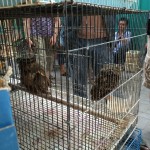
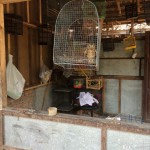
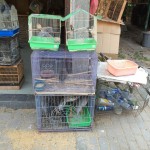
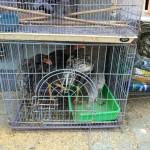
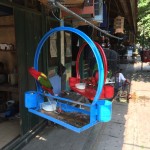
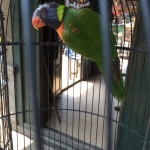
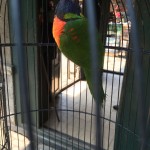
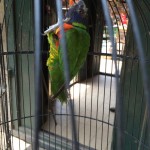
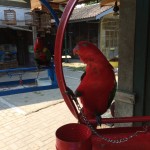
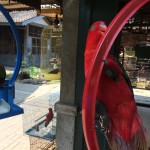
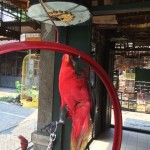
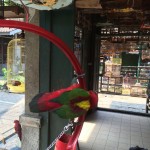
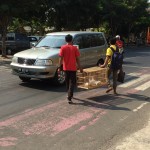
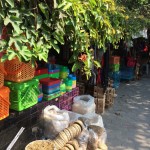
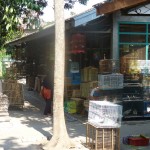
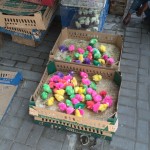
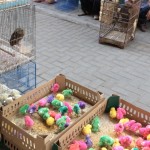
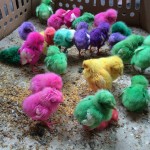
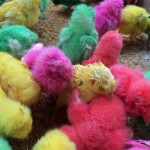
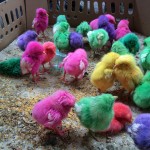
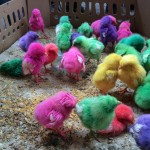
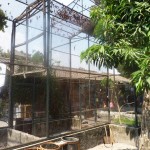
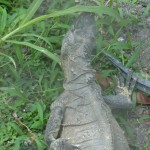
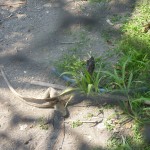
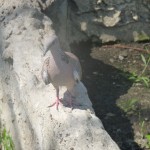

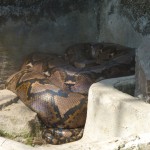
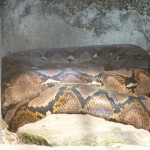
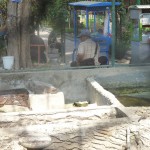
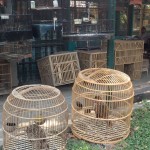
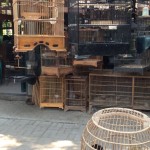
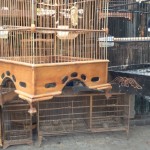
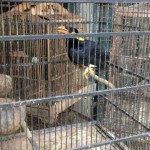
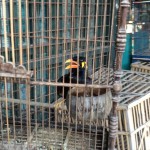
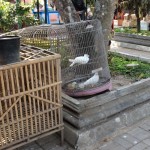
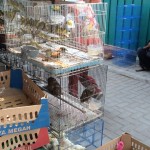
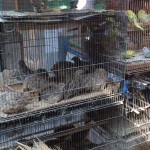
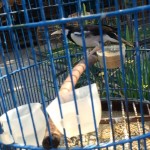





4 Comments
This report by Wolf Clifton simply took my breath away. A veritable tour de force!
The sheer scope of this infernal situation all over Indonesia and similar nations condemned to endemic chaos and exploitation by Western enterprises allied with local, corrupt big shots, all compounded with extremes of poverty and cultural attitudes enforced by the worst of this civilization , not the best, spell out indefinite horrors for untold numbers of helpless animals that few Western activists can comprehend—but should.
I have traveled in the East myself a number of times, from India to Thailand, Vietnam, etc., and Indonesia is easily one of the worst, perhaps THE worst.
This report should be widely read, and I hope more activists will share it. I certainly will. I also do hope Mr Clifton will also consider a book about these experiences in the near future. Even a serial work, in eBook format, would be of great advantage to the animal community.
Incidentally, for those with a strong stomach and stronger heart I recommend a visit to a recent dispatch from world renowned sociopolitical correspondent Andre Vltchek who knows Indonesia extremely well (author of Indonesia: Archipelago of Fear), lived there for a while, and has written extensively about that culture. His essay explains in large measure why such things happen, and what are the hidden roots of this distressing state of affairs.
Horrid Carcass of Indonesia – 50 Years After the Coup
http://www.greanvillepost.com/2015/10/14/horrid-carcass-of-indonesia-50-years-after-the-coup/
Branford, thank you for your words of support! I hope that this article and photographs will be widely circulated, to raise awareness of Indonesia’s wildlife trafficking epidemic and support efforts by Indonesian and international activists to end it.
For the record, I want to state my strong disagreement with several points in Andre Vltchek’s portrayal of Indonesia. I respect his extensive personal experience with Indonesian history, including his acquaintance with figures like Pramoedya Toer. I can’t speak personally to what Indonesia was like decades ago, but compared to what I saw of Jakarta seven years ago, in 2008, I actually believe Indonesia is starting to improve. Between my last visit and this one, Jakarta has progressed from the foulest, most polluted city I’ve ever visited to one relatively clean by developing world standards. The current national government has begun cracking down on the country’s infamous corruption, to the relief of everyone I spoke to while there, and the last few years have seen several major political breakthroughs for animal welfare.
I most strongly object to Vltchek’s extremely negative characterization of Indonesian people today, especially those of younger generations. During my trip I met many dedicated Indonesian animal activists, some of whom regularly risk life and limb opposing powerful enemies, as well as compassionate citizens highly receptive to animal welfare – most of whom were in their 20s and 30s. Despite the horror of atrocities like the wildlife markets, and the country’s bloody history, the many good people I met there, transformation of Jakarta, and positive political developments left me with an overall strong sense of hope for Indonesia’s future.
For more detailed treatments both of Indonesia’s problems and the individuals and groups working to solve them, check out my “Archipelago Animal Adventures” series here on the AP Forum:
https://animalpeopleforum.org/2015/09/30/winds-of-change-along-the-java-sea-archipelago-animal-adventures-days-1-2/
https://animalpeopleforum.org/2015/10/04/escape-from-raptor-island-archipelago-animal-adventures-day-3/
https://animalpeopleforum.org/2015/10/19/night-of-the-fire-face-archipelago-animal-adventures-days-4-5/
(three more entries currently in development)